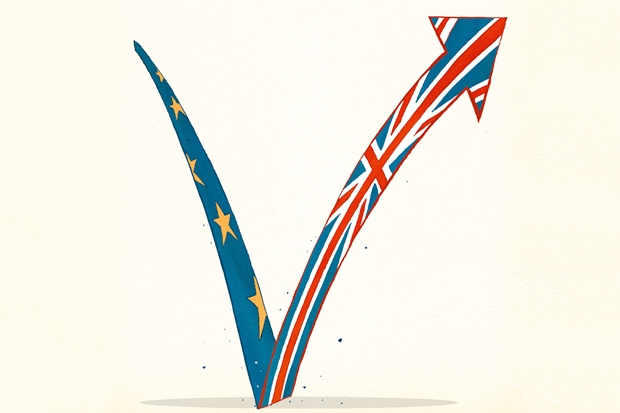So, the Remoaners have at last got a piece of economic news they can try to crow about – the Consumer Prices Index (CPI) rose last month from 0.9 per cent to 1.2 per cent, sparking a round of ‘I told you so’s’ on Twitter – one even describes it as a ‘cost of living crisis’. One suspects he wasn’t around in 1975 – incidentally the year that Britain voted to stay in what was then the Common Market – when inflation topped out 26 per cent.
Except the CPI figures don’t really tell you what the Remain lobby wants to tell us at all. Remember how a few weeks ago the Marmite crisis was interpreted as a grim warning of what was to come as the sinking pound inflated food prices? Actually, food prices fell last month. Whatever inflationary pressures have been put upon supermarkets as a result of a lower pound, they have been counter-acted by deflationary pressures.
The biggest single contributor to the rise in CPI was petrol prices – transport costs added 0.38 per cent to CPI last month. Yet it is hardly dramatic – the price of petrol at the pumps rose by 1.6 per cent a litre. The effect on CPI is stronger, though, because the steep falls in crude oil prices last autumn – petrol fell by 1.5 pence a litre in November 2015 – have begun to drop out of the annual CPI figure.
The next biggest contributors to the rise in CPI in November were hotels and restaurants, and education. Neither sectors are especially prone to a falling pound, as they are service industries which import rather few raw materials. Hotels, I suspect, have taken advantage of a low pound to push up their prices – overseas tourists will hardly notice if a hotel pushes up its prices a bit, given that many will have paid for their rooms in their home currencies before they left home. A London hotel could have jacked up its prices by five per cent in sterling terms compared with last year, but a room will still be cheaper from the point of a view of a US tourist.
What both the hotel and restaurant sectors and education sectors do have in common is that they employ large numbers of people at or near the minimum wage (education includes nurseries, not just Eton). Both, therefore, have suffered from a rise in costs unrelated to Brexit: the increase in the National Minimum Wage in April from £6.70 to £7.20 an hour. That is a sharp rise of £7.40 in costs, yet funny enough the Remain lobby doesn’t want to talk about this. It is only interested in inflationary effects which it can somehow blame on Brexit.







Comments